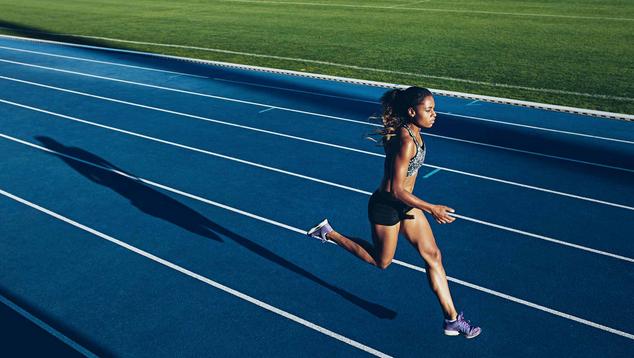Story Highlights
- College athletic programs and student-athletes are struggling amid COVID-19
- Student mental health and wellbeing need supportive environments to thrive
- Discover how to be the wellbeing mentor that your players need and deserve
COVID-19 has altered the landscape of college athletics, and schools are in uncharted waters.
"The pandemic is a time of reckoning for Division I athletic departments, which have historically poured revenue into creating powerhouse facilities and programs but failed to save funds and prepare for a 'blip in their system,' said Nick Schlereth, a professor at Coastal Carolina University.
But it's not just athletic department financials that are strained. More importantly, students' wellbeing is struggling. Education leaders have attempted to quickly shore up their student mental health programs, but it is not enough. Even before the COVID-19 crisis, Gallup found only 17% of recent graduates strongly agreeing that their alma mater is passionate about the mental health of its students.
Since that study was conducted, the global pandemic has wreaked its havoc on the education landscape. One-third of student-athletes are struggling with anxiety and sadness, while one in 12 report feeling so depressed that it has been difficult to function "constantly" or "most every day."
While these figures are staggering, college athletes have dealt with similar conditions for years.
Consider their demanding schedules -- practice, competition and studying combined with pressure to compete on a national level.
"The pandemic is a time of reckoning for Division I athletic departments."
On top of this, the pandemic has also left student-athletes feeling isolated after being physically separated from their teams, a recent NCAA study found: "In most instances, the rates of mental health concerns were 150% to 250% higher than that historically reported by NCAA student-athletes in the American College Health Association's National College Health Assessment."
Consistent, caring touchpoints foster student wellbeing in education.
So, where have athletes turned in the midst of their challenges? Over half (56%) report communicating with the very people who recruited them to campus -- their coaches -- multiple times a week, and 82% report feeling positive or very positive about the support they are receiving from their coaches.
While it's encouraging to see student-athletes respond favorably to their interactions with coaches, the needle isn't moving enough on student mental health.
In the sports world where people are already pressed for time and resources, how can colleges and universities help coaches care and assist student-athletes with mental health needs to improve their wellbeing? How can they create a supportive environment that ensures each student is functioning at a high level of mental health wellbeing? See them as more than athletes.
See each athlete as a person with the opportunity to do what they do best every day.
Less than 2% of NCAA student-athletes will turn pro. Those who don't are learning with every practice and game principles of discipline, time management, teamwork and more. But, imagine if they were also given the opportunity to celebrate their strengths and learn how to apply their unique lens on the world with their "athletic resume" when they talk to employers. That combo would allow them to thrive while on campus and beyond.
Ask openly about their student wellness and wellbeing, and truly listen. Don't just ask them how they are doing -- go deeper. Rather, ask them about what Gallup has learned over the past 10 years: A wellbeing lens on life matters. Are they thriving, struggling or suffering? How are their relationships with their teammates and family? In an economic pandemic, how are they financially? How are they staying physically healthy, eating and sleeping?
Finally, be the mentor that players need and deserve. Michael Phelps, the most decorated Olympian of all time (winner of 28 medals, including 23 golds) has talked openly about his struggle with mental health and depression, and he didn't overcome it alone. He sought out experts to help him through it -- and coaches have the chance to do the same for their student-athletes.
Coaches need to continually remind themselves that they can't be all things to all people. But they also need to commit to guiding their student-athletes to the vital mental health resources on campus and then promise their student-athletes that they will continue to be there with them through the process. That's what great mentors do.
Be the mentor that players need and deserve.
While the world of college athletics may forever be changed, instead of focusing on what's going wrong right now, coaches have the chance to focus on what's going right.
Begin with the gift of authentically caring for your student-athletes to make a difference in their student wellbeing. Maya Angelou said it best: "People will forget what you said, people will forget what you did, but people will never forget how you made them feel." It's not always about wins and losses. Rather, it's about caring for student-athletes -- and never have they needed their coaches more, the ones they go to when they are feeling the most challenged.
To make a closer connection with your student-athletes to improve student wellbeing, begin by learning more about the power of strengths-based development:
- Read our perspective paper to learn the three fundamental steps critical to the success of your CliftonStrengths for Students initiative.
- Develop engaged and thriving students and watch your campus transform.






